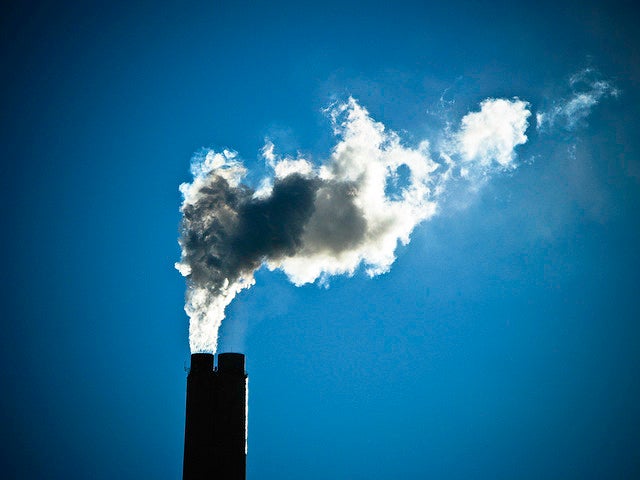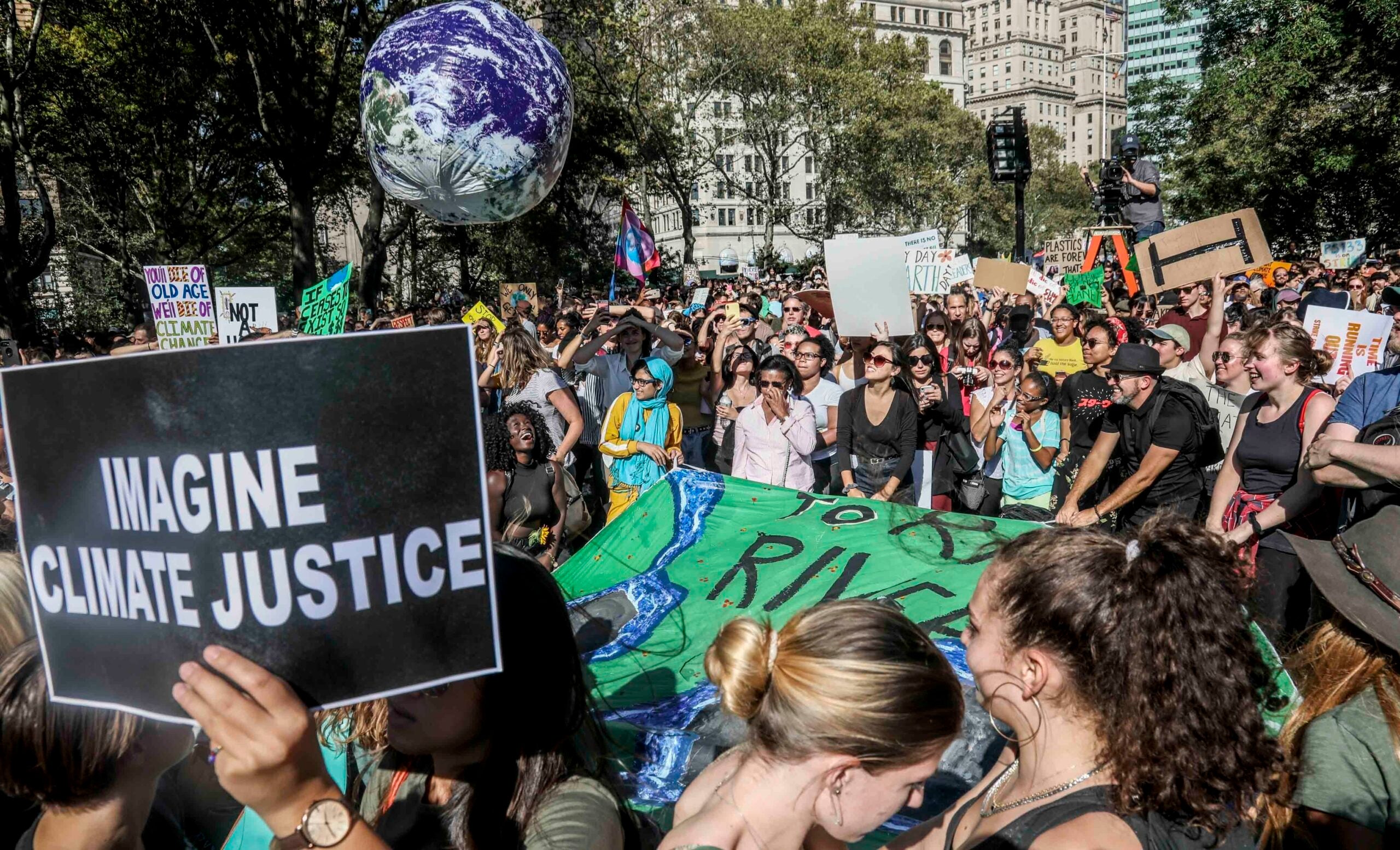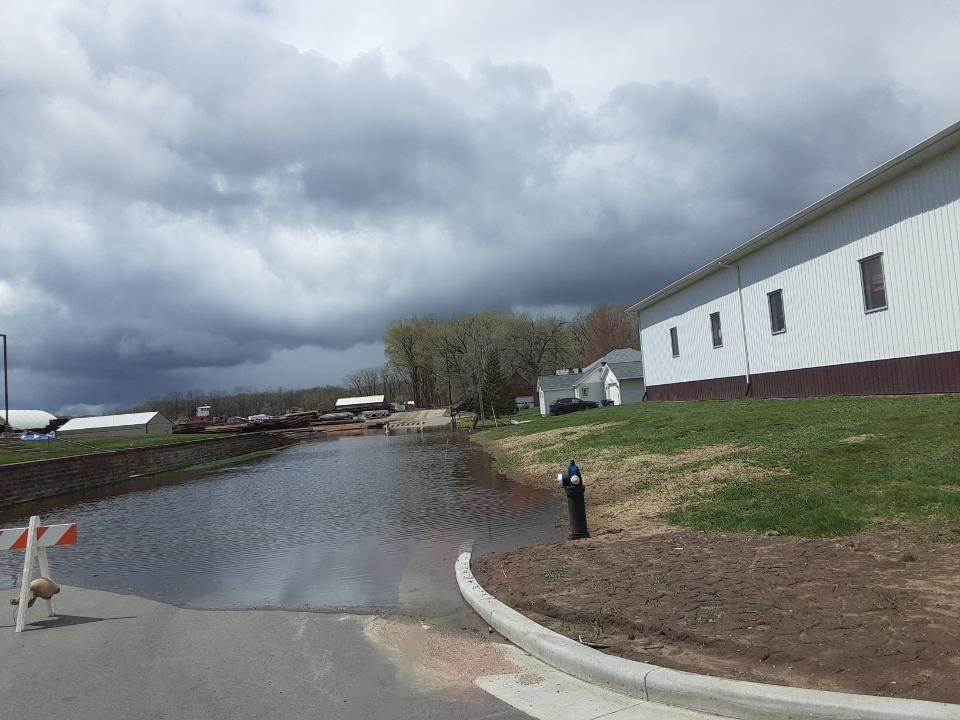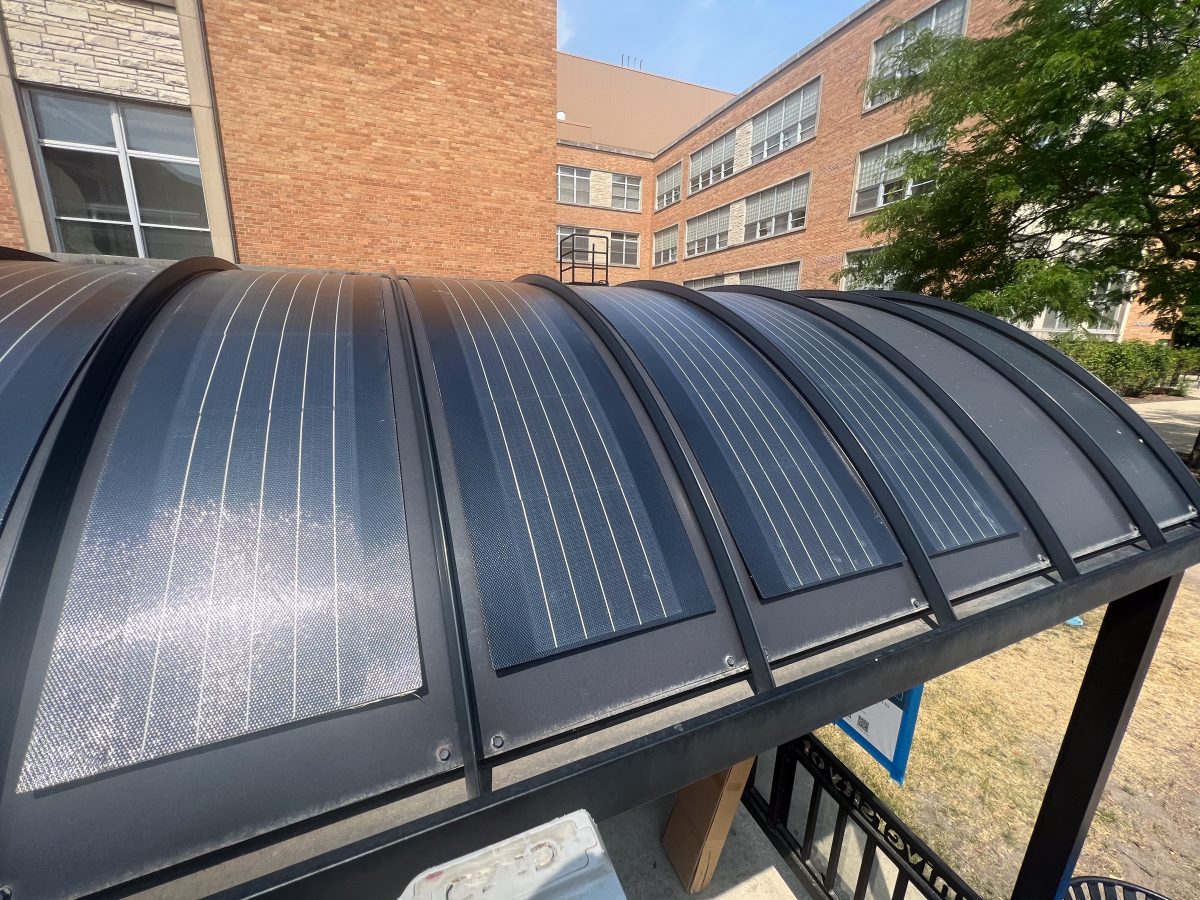The state of Wisconsin should create jobs programs and an “Office of Environmental Justice” to promote an equitable transition to clean energy and reduce greenhouse gas emissions, according to an expansive report listing dozens of recommendations to address climate change.
The report, released Wednesday by the Governor’s Task Force On Climate Change, includes around 50 recommendations on ways to adapt to and reduce the effects of climate change across nine focus areas, including climate justice and equity, energy, transportation and agriculture. The recommendations call for policy changes and executive actions among Wisconsin’s state agencies, as well as increasing or providing funding for a variety of proposals.
Lt. Gov. Mandela Barnes, who chairs the task force, said creating an Office of Environmental Justice will prioritize the livelihoods of people across Wisconsin as it relates to the environment.
News with a little more humanity
WPR’s “Wisconsin Today” newsletter keeps you connected to the state you love without feeling overwhelmed. No paywall. No agenda. No corporate filter.
“With an Office of Environmental Justice, we can turn the page and make sure that we aren’t making the poor environmental policy decisions that not only change the climate, but have adverse impacts on the health, financial security and social and cultural lifestyles of so many people across Wisconsin,” said Barnes.
The report also outlines recommendations for job creation through a green job corps pilot program in Milwaukee that would train people for the renewable energy workforce, as well as the creation of an AmeriCorps-like program to restore natural lands in rural and urban areas.
The document doesn’t detail any specific funding requests at a time when Gov. Tony Evers has directed state agencies to cut $300 million as the state faces a budget shortfall of up to $2 billion during the COVID-19 pandemic. Barnes said they didn’t want the report’s recommendations tied to numbers and needs that can fluctuate over time.
“It is my hope that lawmakers on both sides of the aisle will see this moment that we’re in, this moment of financial duress, of economic uncertainty, and will make the smart choices to invest now so that Wisconsin can be stronger in the long run,” said Barnes.
He noted he will be calling on President-elect Joe Biden’s administration to include funding to support clean energy jobs as part of another COVID-19 stimulus package. Biden has proposed a $2 trillion plan to promote clean energy and reduce greenhouse gas emissions that could face an uphill battle in a divided Congress.
The task force recommended more than a dozen requests for funding including creation of a green grant and loan program to support green businesses and establishing and funding a clean energy training and reemployment program. The group also proposes to increase funding for public transit, farmer-led watershed groups and state programs that support local food systems.
Barnes said the state’s farming community often gets a “bad rap” regarding environmental impacts. People have raised concerns over the impact of farms on clean drinking water in recent years as studies have found evidence of contamination from agricultural sources.
He noted agriculture, which contributed $104.8 billion to the state’s economy in 2017, has also faced challenges due to climate change impacts, which range from flooding to changing growing seasons.
“If we are truly thinking about resilience in the next generation, we’ll make sure that we invite our ag operations to be a part of this conversation to be a part of the solution,” said Barnes.
The recommendations also call for statewide plans to make communities resilient to climate risks and flooding, as well as a statewide electric transportation plan. They also suggest updating rules to reflect the use of rainfall projection models, which could be used to build resilient infrastructure and pinpoint at-risk areas.
Wisconsin is projected to warm as much as 4 to 8 degrees Fahrenheit by mid-century, according to the Wisconsin Initiative on Climate Change Impacts. The increase in warming and precipitation is expected to drive more frequent, intense storms.
In the last two decades, there have been 27 billion-dollar disasters that affected Wisconsin and caused around $100 billion in impacts, according to data from the National Oceanic and Atmospheric Administration. Northern Wisconsin witnessed three storms in the last decade that were only projected to occur once in a lifetime, including the 2016 flood that left much of the Bad River reservation underwater.
Bad River tribal member Dylan Jennings, who also served on the task force, said the tribe has faced many threats from climate change.
“All of our tribal communities are seeing with the decrease in populations of walleye or minoomin, wild rice, and a lot of those (are) really essentially based in climatic change,” said Jennings. “And, so, we’re very hopeful that some of these recommendations can start helping our tribal nations to develop mitigation strategies, adaptation strategies, and also put funding towards these types of actions.”
The report also suggests the state could lead by example through an aggressive goal of 100 percent clean energy for state operations in the next five years and set a target for utilities to cut carbon emissions at least 60 percent by 2030.
Rob Palmberg, a task force member and executive for Dairyland Power, feels it’s an attainable goal. The electric cooperative adopted an internal goal this year to reduce carbon emissions by 50 percent in the next decade.
“It’s a good goal to put in place, and it’s certainly directional to what we as an organization have been heading down for a number of years,” said Palmberg.
Dairyland Power announced earlier this year that it’s retiring its Genoa coal plant in 2021. At the same time, the electric cooperative received approval from state regulators to build a $700 million natural gas facility in Superior with Minnesota Power. The project is facing legal challenges in both states.
Palmberg said they see natural gas as a “bridge fuel” to renewable energy, but environmental groups have opposed new power generation that includes fossil fuel emissions. The task force said some proposals included in the report like avoiding new fossil fuel infrastructure were among items that warranted more discussion outside of the group’s work.
Many of Wisconsin’s large investor-owned utilities have already set goals to produce net-zero carbon emissions by 2050 in line with Evers’ goal to reach carbon-free electricity by that date.
Brendan Conway, a spokesperson for WEC Energy Group, said in a statement Tuesday that the report reflects a commitment from a diverse group to work toward a “bright, sustainable future.” The company’s subsidiary We Energies was among utilities who were represented on the task force.
“As the largest investor in renewable energy in the state, we look forward to continuing our work with Gov. Evers, state legislators, state agencies, environmental groups and customers,” wrote Conway.
The power sector accounted for 33 percent of Wisconsin’s greenhouse gas emissions in 2017, according to figures from the Wisconsin Deaprtment of Natural Resources. Transportation and electricity combined make up 57 percent of the state’s overall emissions.
The report also details recommendations for select agencies to track those emissions along with electricity use and revise energy efficiency goals to increase funding for the state’s Focus on Energy program.
Groups like Clean Wisconsin are supportive of such efforts that encourage ratepayers to save more money on their utility bills, according to Amber Meyer Smith, task force member and the group’s vice president of programs and government relations. Some task force members acknowledged that not all recommendations received support, but they underscored that their work does not represent the end of conversations around climate change.
Meyer Smith said the task force recommendations represent a broad consensus among a variety of stakeholders.
“I think it would be great if we did all of them, but I think even just making progress will be a huge difference for Wisconsin, and for our role in fighting climate change,” said Meyer Smith.
The task force proposed a number of policy recommendations that include mandating racial disparity impact studies for development projects, passing legislation to update state energy codes for buildings and revisit a bill introduced by Democrats to study creating a green bank to finance renewable energy projects.
The group’s proposals could meet opposition from the state’s Republican-controlled Legislature, especially recommendations that seek to reverse fees or policy items approved by GOP lawmakers under former Gov. Scott Walker. Those items would include the removal of additional fees on hybrid and electric vehicles, allowing local governments to ban plastic bags, and restoring a revenue limit exemption for energy efficiency projects in schools.
Task force member Rep. Mike Kuglitsch, R-New Berlin, did not respond to a request for comment. Representatives for Assembly Speaker Robin Vos and incoming Senate Majority Leader Devin LeMahieu also did not return requests for comment Tuesday.
The report identified nine recommendations that it said may warrant further discussion outside of the task force, including controversial proposals to avoid new fossil fuel infrastructure and state divestment of fossil fuel interests.
Other items included within the report:
- Revisiting legislation to require regulators to consider the social cost of carbon in new power generation projects
- Climate/environmental impact analysis on transportation projects
- Incentives to explore soil carbon storage and cover crops
- Providing money for a statewide grazing program
- Restoring wetlands to solve runoff and flooding
- Creating a “Green Energy Advisory Council” tasked with creating a place for training programs
- Creating an advisory committee to facilitate a just transition for displaced workers
- Urban and rural tree planting campaigns
- Increased funding to PSC Office of Energy Innovation to help communities develop green energy infrastructure or microgrids
- Increased funding for the Transportation Alternatives Program
- Providing funding for bike programs
- Increased funding for carbon storage programs
- Providing funding to support economic development in Agricultural Enterprise Areas
- Funding for research of statewide rainfall projections
- More funding for existing flood resilience programs
- Increased funding for state’s Farm-to-School and Buy Local, Buy Wisconsin programs; creating and funding the Governor’s Farm-to-Fork proposal
- Increased funding for private landowner assistance through the Wisconsin Forest Landowner Grant Program (WFLGP) to encourage more tree planting
- Securing funding to buy and reforest open lands
- Creating first state forest with primary goal of carbon storage
- Securing funding to acquire conservation easements and buy lands
- Improve the tribal consultation process
- Implement anti-racism education
Wisconsin Public Radio, © Copyright 2025, Board of Regents of the University of Wisconsin System and Wisconsin Educational Communications Board.






